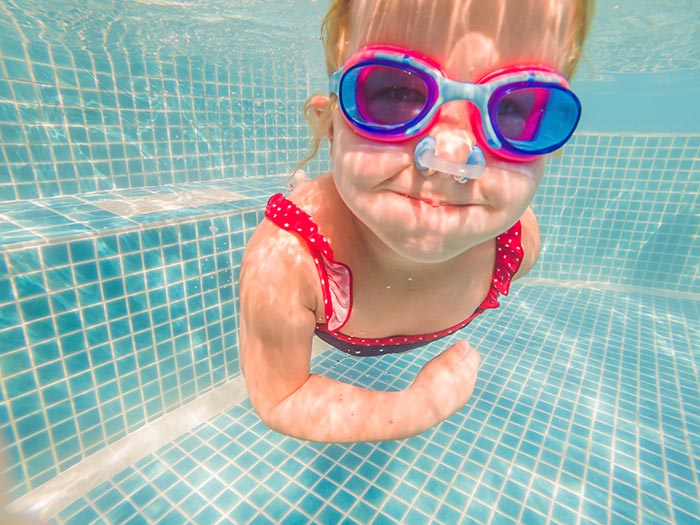
Swimming is much more than just an enjoyable recreational activity. For children and adults with autism, it can be an incredible therapeutic tool that provides not only physical benefits but also promotes mental, emotional and social growth. Whether it's boosting focus, easing anxiety or enhancing motor skills, swimming is a powerful ally for those on the autism spectrum.
1. Calming the Mind
One of the first and most profound benefits of swimming for children and adults with autism is the calming effect it can have on the mind. Many autistic people face heightened anxiety, sensory overload or challenges with emotional regulation. Swimming can help calm these emotions, as the repetitive nature of the strokes and breathing techniques fosters mindfulness. When we swim, we are required to focus on our breath and maintain a rhythm and pattern. This practice helps regulate breathing and clears the mind, providing a meditative-like effect that can help lower stress and anxiety levels. For people with autism, this moment of peace, paired with the soothing motions of swimming, can be a life-changing experience.


2. Sensory Benefits
Sensory experiences can often be overwhelming for those with autism. Many are sensitive to loud noises, bright lights or unfamiliar textures. However, water offers a uniquely soothing environment. The buoyancy of the water provides resistance and pressure, providing a sense of comfort and calm. Water can also help individuals with autism explore sensory experiences in a positive way. The sensation and sound of movement in the water, the light refracting beneath the surface and the feeling of weightlessness become part of a gentle and stimulating experience. For many children, water-based activities provide the right balance of sensory input, allowing them to thrive from a young age.
3. Developing Motor Skills
Swimming is a full-body workout that engages almost every muscle group. For children with autism, developing fine and gross motor skills is often a significant area of growth. Swimming involves a combination of arm and leg movements, balance and coordination, all of which are crucial in developing motor skills. By swimming, both children and adults can improve their strength, flexibility and coordination. The various strokes and swimming exercises allow them to practice muscle control in a fun and supportive environment. Over time, these physical benefits can translate into improvements in everyday tasks.


4. Building Confidence
One of the most empowering aspects of swimming is the sense of achievement it brings. Individuals with autism often face challenges in areas like communication and social skills, which can sometimes lead to a lack of confidence. Swimming provides an opportunity to build self-esteem in a structured, encouraging environment. This sense of accomplishment helps in the pool and boosts self-assurance in other areas of life.
5. Creating a Safe Environment
It’s important to note that swimming should always be approached with patience and understanding. For some adults and children with autism, the water environment may seem daunting at first. Having a seating or platform area within the pool can help introduce the water gradually. With the right approach, swimming can be a therapeutic and enjoyable activity that significantly benefits both physical and mental well-being.

At Origin, we understand how essential it is to create an environment that nurtures individual needs. An indoor pool can offer a private, safe space for those with autism to experience the many benefits of swimming without the distractions and pressures of a traditional pool setting.
If you’re considering an indoor pool, contact Origin for a consultation. We’ll help you create a space that fosters development through the power of swimming.
*Research and information on this subject are available at the National Autistic Society, Autism Speaks and the National Institute of Health.


 Locations Covered
Locations Covered



